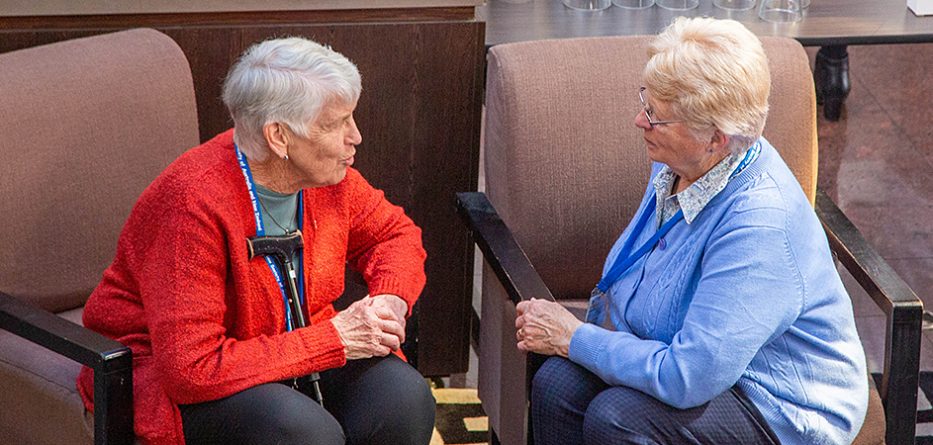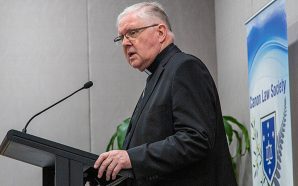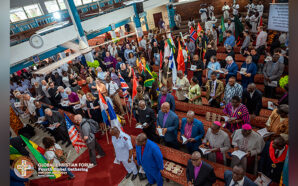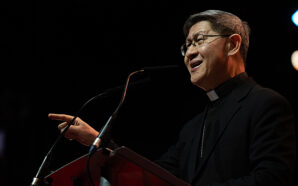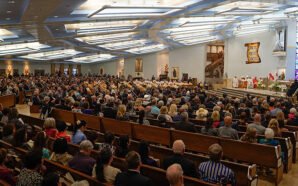“I see clearly that the thing the church needs most today is the ability to heal wounds and to warm the hearts of the faithful; it needs nearness, proximity. I see the church as a field hospital after battle…” – Pope Francis, interview with Antonio Spadaro, SJ, La Civilta Cattolica, 2013.
For me, the image of a field hospital after battle conjures up childhood memories of watching M*A*S*H, a TV series set in a US Mobile Army Surgical Hospital during the Korean War. The warning sirens would sound, helicopters would land bearing wounded from the front, and the nurses and doctors would be pulled from their petty squabbles into life-and-death situations of triage and surgery.
In the midst of the mud, blood and chaos, bumbles Fr Francis Mulcahy SJ, their naïve and somewhat irrelevant chaplain. Yet despite him having nothing to contribute medically, increasingly as time goes on, he is honoured by the other characters because of his commitment to be where people are suffering.
“…The ministers of the Gospel must be people who can warm the hearts of the people, who walk through the dark night with them, who know how to dialogue and to descend themselves into their people’s night, into the darkness, but without getting lost,” continues the other Jesuit Francis in his interview quoted above.
At the heart of Pope Francis’ pastoral strategy for the renewal of the Church is his promotion of the art of accompaniment, the ministry of walking alongside fellow pilgrims, supporting them in their journey of life and faith. It is a relational way of ministry, of spiritual companionship, walking together like the two disciples on the road to Emmaus, but unlike them being attentive to the presence of the risen Jesus.
As a school-based youth ministry co-ordinator and a permanent deacon, I have become increasingly conscious of the importance of personal accompaniment. It is true that we do accompany one another as a Christian community, in liturgy and life, through parishes, programs and pilgrimages. But there is something significant in intentional one-to-one spiritual conversation that sets aside a time and space to allow for sacred deep listening.
With the coming of COVID-19, a lot of the gathered programs which I regularly run – retreats, reflection days, youth groups and Bible studies – have ground to a halt. The grace of this has been the time it has given me to invest in individuals through spiritual accompaniment. There is nothing extraordinary or complex about it; it is as simple as booking someone in for an hour’s conversation.
There is no magic formula to how the conversation goes. I start with life: “How are you going?” and, when the time is right, I move into more explicit spirituality: “And how are you going with God?”
That is literally my favourite question. It is so open and lets people start wherever they feel most comfortable. When I started doing this, I was shocked at how readily people dived deep into sharing about their spiritual selves, their consolations and struggles with their faith.
There are of course other types of questions that help unpack these: “What energises you and brings you joy? What drains the life from you or brings you down? Where is God in the middle of all this? How you do you connect with God? How do you feel God is calling you?”
And here’s the secret to success in accompaniment: People love to be heard! One of the most affirming things you can do for a person is to give them your complete and undivided attention – staying with the person, rather than leading them to where I think they should be is essential. I never give advice, as tempting as that can often be. Sometimes the answer seems so blindingly obvious. But to try and shortcut their search is actually short-changing them. I need to trust that God’s Spirit is at work in them, and that God’s will is going to unfold for them naturally when they are given the time and space to allow it to do so. I do occasionally share examples from my own story – as a fellow traveller, witnessing rather than teaching. But I am not a spiritual director and do need to be clear on my boundaries and expertise.
What I started with students at school I am now transposing as a new normal for all my ministry. As I prepare couples for marriage, parents for the Baptism of their child, teenagers for the sacraments of initiation and families for funerals, I am losing my fear of asking them the big questions. As I listen, most often I am inspired by the gracious workings of God in the lives of people in ways that I would never even have imagined from what I see on the surface, like the long-haired larrikin surfie who turned out to have a profoundly rich prayer life. Some share their raw struggles with the Church or with God, their loss of faith – it is important that they too are heard and affirmed. And, on occasion, I have been called to descend into the dark night with someone, to be present to their suffering, knowing that maybe I can’t fix them, but I can be there for them, sharing the simple warmth from my own broken and bleeding heart.
Like Fr Mulcahy, I may not have the answers to the chaos, suffering and sorrows of life, but I am called to have the courage to stay the road with my fellow pilgrims.
Deacon Adrian Gomez is the Youth Ministry Coordinator at St Leo’s Catholic College and the Chaplain for Catholic Youth Broken Bay. As well as teaching religious education, in pre-COVID times he organised student visits to nursing homes and homeless services as well as student liturgies, retreats, sacramental preparation and participation in Australian Catholic Youth Festivals and World Youth Days. He also works two days a week at the Diocesan Marriage Tribunal helping the divorced with annulment applications. As a deacon, Adrian celebrates weddings, baptisms and funerals. He is married to Dr Cristina Lledo Gomez, Presentation Sisters Theology Lecturer, BBI, and they have two children, Julian aged 15 and Sophia aged 13.
This article first appeared in the December 2020 edition of The Bridge, the newsletter of the National Centre for Evangelisation. Reproduced with permission.




